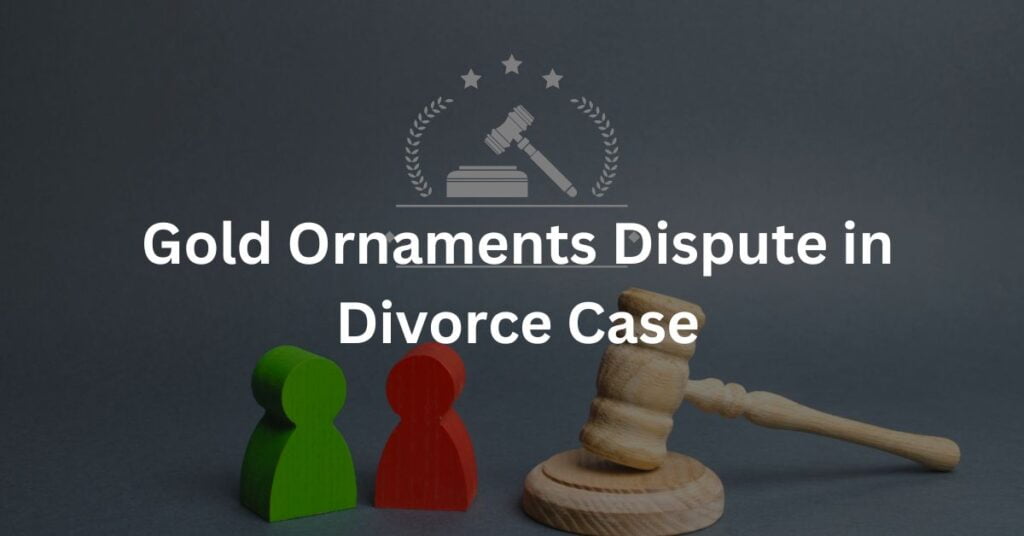Filing for divorce can be emotionally and legally challenging. It’s a decision that comes with numerous complexities, and making mistakes during the process can have long-lasting consequences. In this article, we will explore the top five mistakes to avoid when filing for divorce. By being aware of these pitfalls, you can navigate the divorce process more smoothly and protect your interests.
Table of Contents
ToggleUnderstanding the Implications of Divorce
What is Divorce?
Divorce is the legal dissolution of a marriage, which ends the marital bond between spouses. It involves the division of property, assets, and responsibilities and can also address issues like child custody and spousal support.
Legal and Emotional Aspects of Divorce
Divorce isn’t just a legal procedure; it’s an emotional journey as well. Understanding the legal and emotional dimensions of divorce is crucial for making informed decisions throughout the process.
Divorce as a Taboo in Indian Society
Divorce has long been a subject of social stigma and taboo in Indian society. In a country known for its rich cultural traditions and deep-rooted family values, the idea of marital dissolution is often met with resistance and disapproval.
Failing to Seek Legal Counsel
The Importance of Legal Advice
One of the most significant mistakes individuals make when filing for divorce is not seeking legal counsel. A qualified divorce attorney can provide guidance on your legal rights, help you navigate the legal complexities, and ensure that your interests are protected.
Finding the Right Divorce Attorney
Choosing the right divorce attorney is paramount. Research and select an attorney who specializes in family law and has experience with cases similar to yours. A good attorney will listen to your concerns, explain your options, and work with you to achieve the best possible outcome.
Neglecting Financial Planning
Financial Considerations in Divorce
Divorce often involves the division of assets and debts. Failing to consider the financial aspects of divorce can lead to unfavorable outcomes. It’s essential to have a clear understanding of your financial situation and what you’re entitled to.
Dividing Assets and Debts
Work with your attorney to ensure that assets and debts are divided fairly. Consider assets like property, investments, and retirement accounts, and don’t overlook debts, such as loans and credit card balances. Failing to address these issues can have lasting financial repercussions.
Disregarding Child Custody and Support
Child Custody and Parenting Plans
If you have children, their well-being must be a top priority. Disregarding child custody and parenting arrangements can be a grave mistake. Ensure that you and your ex-spouse create a parenting plan that is in the best interests of your children.
Child Support Obligations
Child support is another critical consideration. Ensure that child support arrangements are fair and legally sound. Ignoring this aspect can lead to financial and legal issues down the road.
Allowing Emotions to Drive Decisions
Emotional Decision-Making
Divorce is emotionally charged, and it’s easy to let anger, hurt, or frustration drive decisions. However, making decisions based on emotions rather than logic can lead to unfavorable outcomes.
The Role of Mediation and Counseling
Consider mediation and counseling to help you and your spouse work through emotional issues and reach agreements. These processes can be instrumental in achieving an amicable divorce.
Conclusion
Filing for divorce is a significant life event that should be approached with careful consideration and the guidance of a qualified attorney. By understanding the implications of divorce, seeking legal counsel, financial planning, and focusing on the best interests of your children, you can avoid common pitfalls. Remember that emotions should be managed and not allowed to dictate important decisions. Divorce in India can lead to social isolation and condemnation. The fear of being ostracized by one’s community or extended family can be a significant deterrent for individuals seeking divorce.
In recent years, there has been some legal and societal progress in addressing these challenges. Legal reforms have made divorce procedures more accessible and efficient. Awareness campaigns and support groups are emerging to help individuals navigate the emotional and social aspects of divorce. However, the taboo surrounding divorce in Indian society is a deeply ingrained issue that will take time to fully change. It requires a balance between preserving cultural values and allowing individuals the freedom to make choices that are in their best interests.



